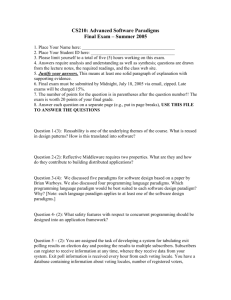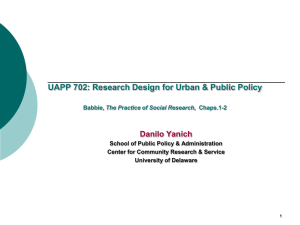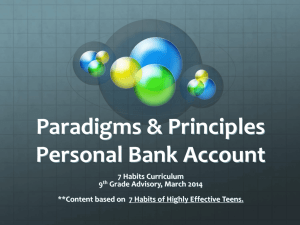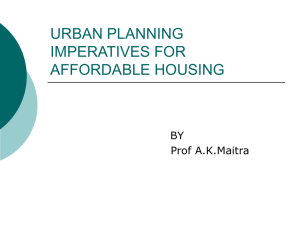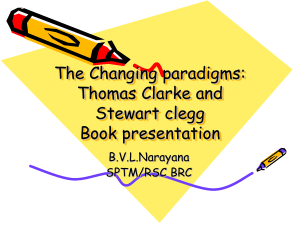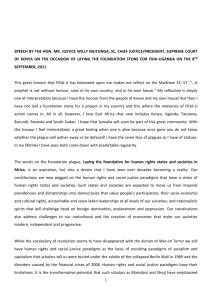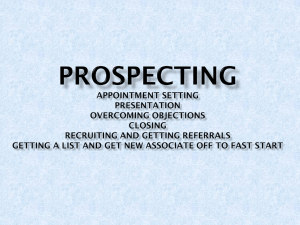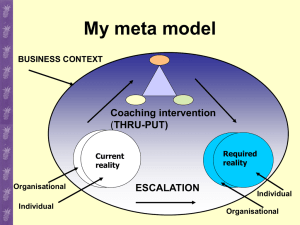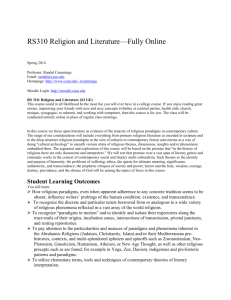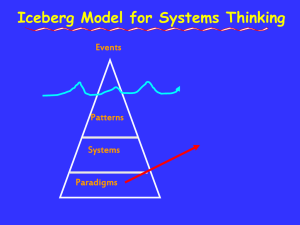Introduction to Packaging Design - Ivy Tech -
advertisement
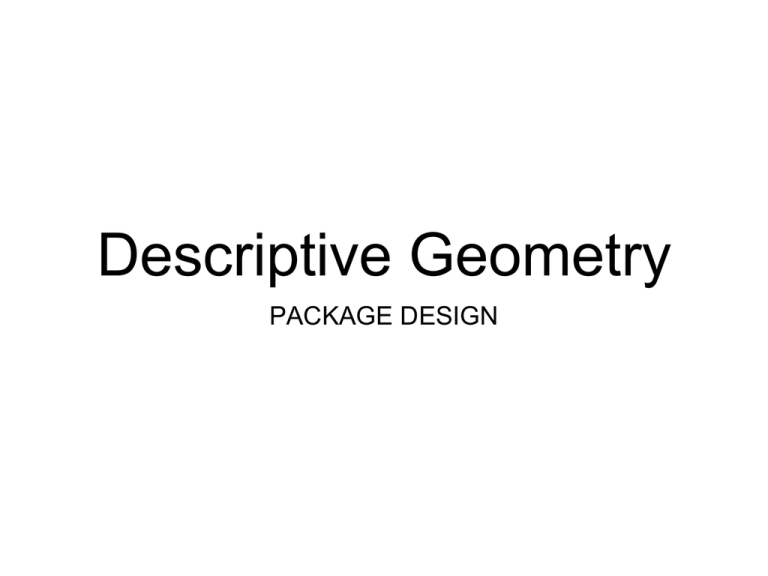
Descriptive Geometry PACKAGE DESIGN Package Design Goals Package Design “It is the pervading law of all things organic... Of all true manifestations of the head, of the heart, of the soul, that life is recognizable in its expression, that form ever follows function.” - Louis Sullivan, architect Protects the product Contains the product Displays the product PURPOSE of package design Package Design When Form does NOT follow Function Package Design History “Histories make men wise; poets, witty; the mathematics, subtle; philosophy, deep; logic and rhetoric, able to contend.” - Francis Bacon (1561-1626) Package Design History Package Design Common Materials Package Design Common Materials The majority of container work uses paperboard / cardboard because: • Its base (wood pulp) is a renewable resource • It can be recycled / reused • Cost-effective • Environment-friendly • most accessible medium • Easily manipulated by hand • Endless design opportunities & potentials Package Design Paradigms paradigm: 1. A typical example of something; 2. an example that serves as a pattern or model from something, especially one that forms the basis of a methodology or theory. Package Design Paradigms BOX Package Design Paradigms PYRAMID Package Design Paradigms CONE Package Design Paradigms CYLINDER Package Design Processes “When we approach a new package project, the first question we ask ourselves is, ‘How can we do this differently?’ We’re not looking for the obvious solution. We’re looking for the creative one.” - Sol Lang, Creative Director Crayon Design Group Package Design Processes DIE CUTTING •Adds depth, texture and information •Draws audience into the contents •Compelling visual element that brings negative space into the design When designing: Is the die cut necessary? Does it create a strong element within the overall design? Does it engage the viewer in a way not possible without the cut? Does the cut reveal relevant & interesting information inside the package? Be sure the cut does not compromise the strength of the package Package Design Processes POP-UPS •Called “paper engineering” •An interactive section that adds a sense of surprise & fun •Labor intensive & costly •Adds a 3-D aspect to communicate more information than static images When designing: Learn from “reverse engineering” (by disassembling examples) Requires trial & error investigations Pop-up CD Design Package Design Processes SPECIAL CLOSURES •Adds to the visual & tactile experience •Has a tendency to elevate the craft When designing: The variations are limitless Design by Jessica Baechle Package Design Graphics “The front fights for out interest while the back reassures us that our choice is a sound one.” - Chuck Groth Design Principles Package Design Steps Consider the contents & Develop a design concept. • Is it fragile? • Durable? • Oddly shaped? • Is it a solid, liquid, or powder? Design the basic form. Add more detail to appropriate surfaces. • If appropriate, add die-cuts, etc. Map the graphics. Sketch all ideas at every stage of the design process! Create the best development for your particular design. • So that graphics are continuous, etc. Package Design Examples Design Concept Package Design Examples Package Design Examples Package Design Examples Design by Jose Soto Gregeda (Mexico) © Mark Weisz Design, Clifton, NJ Package Design Examples © Hornall Anderson Design Works Design by Daniel Shinn Packaging Design by Crayon Design & Communication, Montreal, Quebec, Canada (Produced for MSC International) Package Design Examples © Hornall Anderson Design Works Design by Jessica Baechle Package Design Examples © Rob Wright, Redwood Design (South Africa) © Brewer Riddiford, London Package Design Examples © Tridgimage / 3D Packaging Image Design Design by Dmitry Paperny Package Design Examples Design by Bradford Klemmer (Photo by Tadashi Isozaki) Design by Jessica McEntire (Photograph by Tadashi Isozaki) Sources Groth, Chuck. Exploring Package Design: The Art and Techniques of Designing Exceptional Packaging. Thomson Delmar Learning, 2006.
